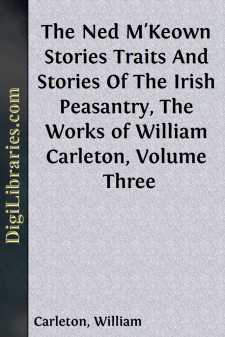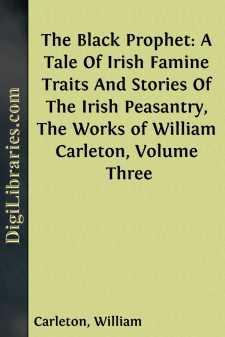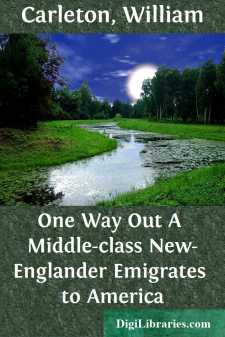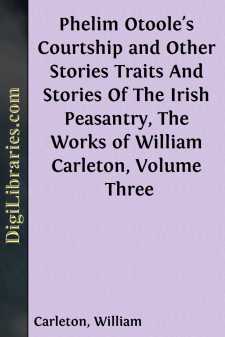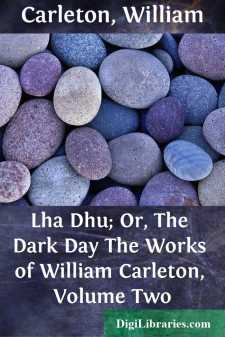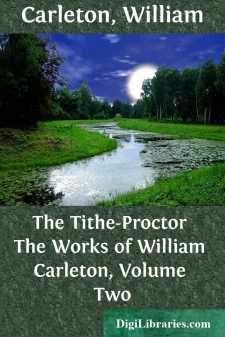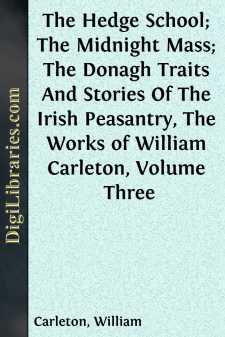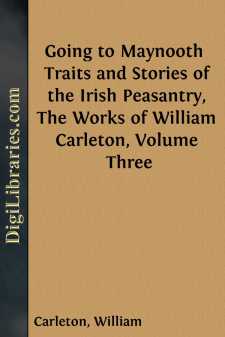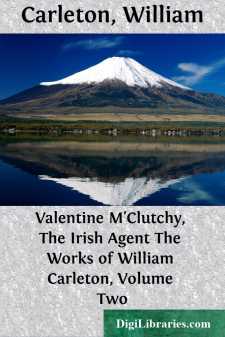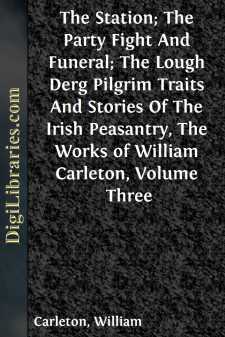Categories
- Antiques & Collectibles 13
- Architecture 36
- Art 48
- Bibles 22
- Biography & Autobiography 813
- Body, Mind & Spirit 141
- Business & Economics 28
- Children's Books 12
- Children's Fiction 9
- Computers 4
- Cooking 94
- Crafts & Hobbies 4
- Drama 346
- Education 46
- Family & Relationships 57
- Fiction 11826
- Games 19
- Gardening 17
- Health & Fitness 34
- History 1377
- House & Home 1
- Humor 147
- Juvenile Fiction 1873
- Juvenile Nonfiction 202
- Language Arts & Disciplines 88
- Law 16
- Literary Collections 686
- Literary Criticism 179
- Mathematics 13
- Medical 41
- Music 40
- Nature 179
- Non-Classifiable 1768
- Performing Arts 7
- Periodicals 1453
- Philosophy 64
- Photography 2
- Poetry 896
- Political Science 203
- Psychology 42
- Reference 154
- Religion 513
- Science 126
- Self-Help 83
- Social Science 81
- Sports & Recreation 34
- Study Aids 3
- Technology & Engineering 59
- Transportation 23
- Travel 463
- True Crime 29
William Carleton
William Carleton (1794-1869) was an influential Irish writer best known for his vivid depictions of rural Irish life in the 19th century. His most celebrated work, "Traits and Stories of the Irish Peasantry," provides a rich, detailed portrayal of the social customs, struggles, and folklore of Irish peasants. Despite facing criticism for his negative portrayals of certain aspects of Irish life, Carleton's writings are valued for their authenticity and contribution to Irish literature.
Author's Books:
Sort by:
by:
William Carleton
INTRODUCTION. It will naturally be expected, upon a new issue of works which may be said to treat exclusively of a people who form such an important and interesting portion of the empire as the Irish peasantry do, that the author should endeavor to prepare the minds of his readers—especially those of the English and Scotch—for understanding more clearly their general character, habits of thought,...
more...
by:
William Carleton
CHAPTER I. — Glendhu, or the Black Glen; Scene of Domestic Affection. Some twenty and odd years ago there stood a little cabin at the foot of a round hill, that very much resembled a cupola in shape, and which, from its position and height, commanded a prospect of singular beauty. This hill was one of a range that ran from north to southwest; but in consequence of its standing, as it were, somewhat...
more...
by:
William Carleton
A BORN AND BRED NEW ENGLANDER My great-grandfather was killed in the Revolution; my grandfather fought in the War of 1812; my father sacrificed his health in the Civil War; but I, though born in New England, am the first of my family to emigrate to this country—the United States of America. That sounds like a riddle or a paradox. It isn't; it's a plain statement of fact. As a matter of...
more...
by:
William Carleton
PHELIM O'TOOLE'S COURTSHIP. Phelim O'Toole, who had the honor of being that interesting personage, an only son, was heir to a snug estate of half an acre, which had been the family patrimony since the time of his grandfather, Tyrrell O'Toole, who won it from the Sassenah at the point of his reaping-hook, during a descent once made upon England by a body of "spalpeens," in...
more...
by:
William Carleton
There is no country in the world whose scenery is more sweetly diversified, or more delicately shaded away into that exquisite variety of surface which presents us with those wavy outlines of beauty that softly melt into each other, than is that of our own green island. Alas! how many deep valleys, wild glens, green meadows, and pleasant hamlets, lie scattered over the bosom of a country, peopled by...
more...
by:
William Carleton
CHAPTER I.—The Chapel Green of Esker Dearg. The chapel of Esker Dearg, or the Red Ridge, was situated in a rich and well-cultivated country, that for miles about it literally teemed with abundance. The Red Ridge under which it stood was one of those long eminences, almost, if not altogether, peculiar to Ireland. It was, as the name betokens, a prolonged elevation that ran for nearly a mile and a half...
more...
by:
William Carleton
THE HEDGE SCHOOL. There never was a more unfounded calumny, than that which would impute to the Irish peasantry an indifference to education. I may, on the contrary, fearlessly assert that the lower orders of no country ever manifested such a positive inclination for literary acquirements, and that, too, under circumstances strongly calculated to produce carelessness and apathy on this particular...
more...
by:
William Carleton
GOING TO MAYNOOTH. Young Denis O'Shaughnessy was old Denis's son; and old Denis, like many great men before him, was the son of his father and mother in particular, and a long line of respectable ancestors in general. He was, moreover, a great historian, a perplexing controversialist, deeply read in Dr. Gallagher and Pastorini, and equally profound in the history of Harry the Eighth, and...
more...
by:
William Carleton
CHAPTER I.—An Irish Pair and Spoileen Tent —A Marriage Proposal—An Under Agent—An Old Irish Squire and Union Lord. The town of Castle Cumber it is not our intention to describe at more length than simply to say, that it consists of two long streets, intersecting each other, and two or three lanes of cabins—many of them mud ones—that stretch out of it on each side at right angles. This...
more...
by:
William Carleton
THE STATION. Our readers are to suppose the Reverend Philemy M'Guirk, parish priest of Tir-neer, to be standing upon the altar of the chapel, facing the congregation, after having gone through the canon of the Mass; and having nothing more of the service to perform, than the usual prayers with which he closes the ceremony. "Take notice, that the Stations for the following week will be held as...
more...


